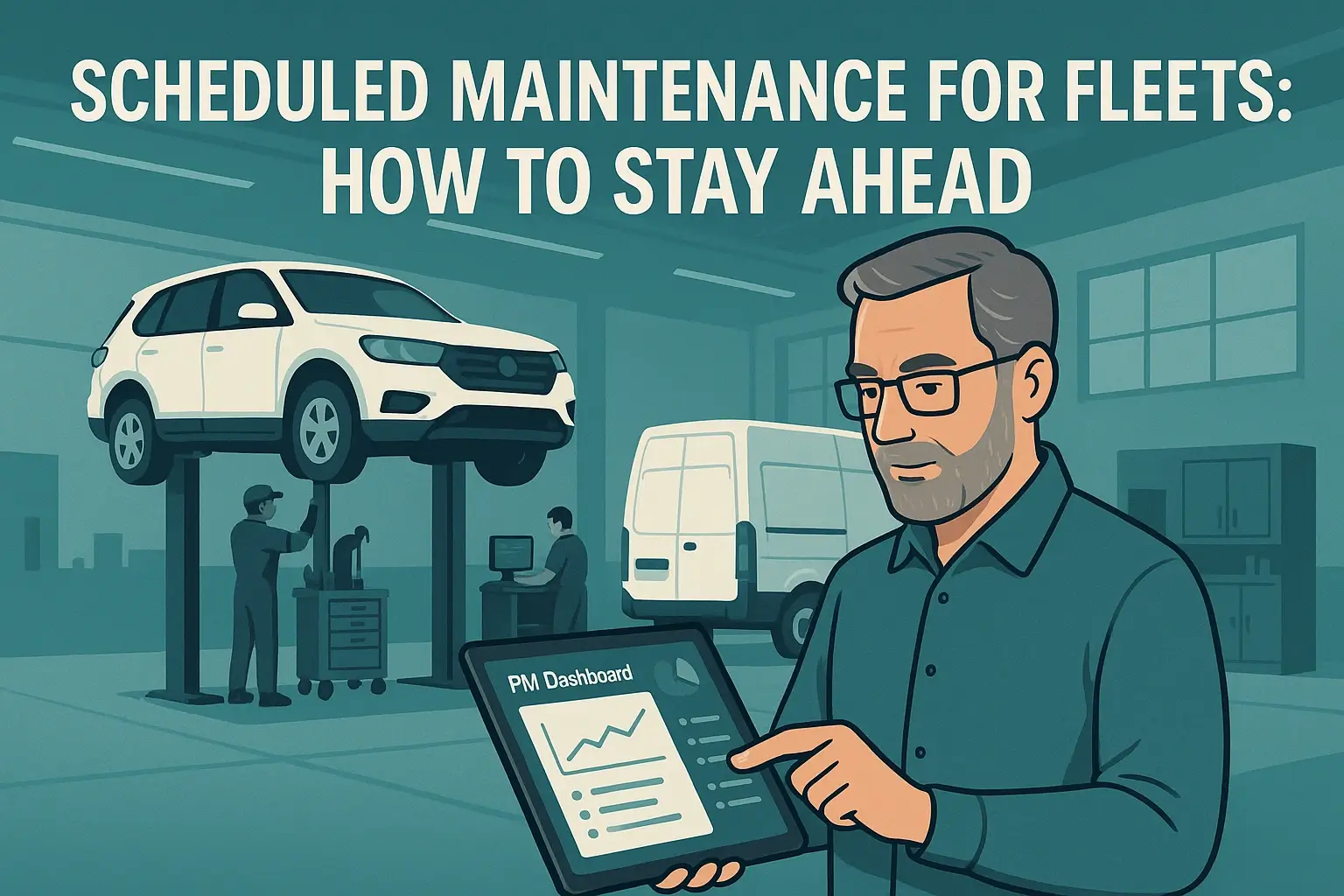Key Takeaways
Running a fleet of trucks is a complex business, requiring constant maintenance and monitoring to ensure optimal performance and safety. With the advancement of technology, truck maintenance software has become an essential tool for businesses to keep track of their fleet and streamline maintenance operations.
However, with so many options available, it can be challenging to choose the right truck maintenance software for your business. In this article, we'll discuss how to choose the right truck maintenance software for your business.
What is Truck Maintenance Software?
Truck maintenance software is a type of fleet software that helps businesses manage and maintain their fleet of trucks.
It provides a comprehensive solution for truck maintenance.
1. Schedule preventive maintenance routine
Create customized PM plans based on manufacturer recommendations, mileage, or hours of operation.
2. Track service history
Maintain a detailed record of all repairs and service history of each truck, including dates, maintenance costs, and parts used.
3. Manage work orders
Get automatic service reminders, issue work orders to mechanics, track their progress, and receive updates on repairs.
4. Monitor parts inventory
Track parts usage, maintain minimum stock levels, and generate purchase orders when needed.
5. Generate maintenance reports
Gain insights into fleet health, identify maintenance trends, and make data-driven decisions to optimize your operations.
Why Choose Truck Maintenance Software?
There are several compelling reasons why businesses should consider using truck maintenance software to manage their fleet.
Here are some of the key benefits of using truck maintenance software:
Improved efficiency:
Truck maintenance software can help businesses schedule and track maintenance tasks, manage repair history, and monitor inventory levels, all from a single, centralized location. This can help reduce administrative overhead, streamline preventive maintenance, and improve efficiency.
Increased uptime:
By proactively scheduling maintenance tasks and monitoring vehicle health, truck maintenance software can help businesses avoid breakdowns and reduce downtime. This can help ensure that vehicles are available when they're needed, which can help extend truck lifespan, improve customer satisfaction, and increase revenue.
Improved safety for trucks:
Truck maintenance software can help businesses ensure that their vehicles are well-maintained and safe to operate. This can help reduce the risk of accidents and liability issues, which can be costly for businesses.
Reduced costs:
By reducing downtime, improving efficiency, and avoiding breakdowns, truck maintenance software can help businesses save money on repairs, fuel, and labor costs. Additionally, by monitoring fuel usage and inventory levels, the software can help businesses identify opportunities to reduce fuel consumption and optimize inventory levels.
Compliance management for trucks:
Truck maintenance software can help businesses in the trucking industry stay compliant with regulatory requirements, such as DOT inspections and emissions testing. DOT compliance and other such regulatory fulfilments can help reduce the risk of fines and penalties.
How to Choose the Right Truck Maintenance Software for Your Business
Define Your Needs
Before you start looking for truck maintenance software, it's essential to define your needs. What features do you need? What are your priorities? What are your pain points? Identifying your needs and priorities will help you narrow down your options and make an informed decision.
Some of the common features that you may want to consider include:
- Preventive maintenance scheduling
- Repair or service history tracking
- Inventory management
- Fuel management
- Asset tracking
- Work order management
- Driver management
- Compliance management
Consider the User Interface
Another important factor to consider when choosing truck maintenance software is the user interface. The truck fleet management software should be intuitive and user-friendly, making it easy for your team to navigate and use.
A complicated user interface can lead to frustration, which can negatively impact productivity and efficiency. Look for software that offers a clean and organized dashboard, with clear navigation and easy-to-use features.
Evaluate Integration Capabilities
Truck maintenance software is just one of the tools you use to manage your business. It's essential to consider how well the software integrates with your existing tools and systems. Ideally, you want software that seamlessly integrates with your accounting, dispatch, and GPS tracking software.
Integration capabilities ensure that your data is accurate, consistent, and up-to-date, and that you can access it from one central location. For instance, real-time diagnostics trouble codes help you gain valuable insights into the nature of the issue, allowing for more targeted troubleshooting and repair.
Look for Mobile Functionality
Mobile functionality is a crucial feature to consider when choosing truck maintenance software. Your drivers and technicians are constantly on the move, and they need access to critical information and tools on their mobile devices.
Look for software that offers a mobile app for truck maintenance that allows your team to access the software from anywhere, at any time.
Check for Customization Options
Every business is unique, and your truck maintenance software should be customizable to meet your specific needs. Look for software that offers customization options, such as customizable dashboards, reports, and alerts.
Customization options allow you to tailor the software to your business, making it more efficient and effective.
Consider Security and Data Privacy
Truck maintenance software stores critical data about your fleet, including maintenance records, inventory levels, and fuel usage.
It's essential to consider the security and data privacy of the software you choose. Look for truck fleet maintenance software that offers robust security features, such as encryption, two-factor authentication, and role-based access control.
Additionally, ensure that the software complies with data privacy regulations, such as GDPR and CCPA.
Evaluate Customer Support
Finally, when choosing truck maintenance software, it's essential to evaluate the level of customer support provided by the software vendor. Look for software vendors that offer multiple channels of support, such as phone, email, and chat.
Additionally, ensure that the vendor has a dedicated support team that can assist you with any issues or questions you may have.
How to Implement Truck Fleet Maintenance Software
Once you've chosen the perfect truck fleet maintenance software for your business, it's time for a smooth implementation. Here's a breakdown of the critical steps:
- Data Migration: This involves transferring maintenance data into the new software, including vehicle information, service logs, and parts inventory. Ensure accurate data migration to avoid discrepancies.
- User Training: Provide comprehensive training for your team on work order management, preventive maintenance scheduling, and utilizing all the software's features. This empowers your drivers to log data accurately and fleet managers to optimize workflows.
- Customization: Most software offers customization options. Tailor features like compliance management settings specific to the ELD mandate and fuel management parameters to best suit your fleet's needs.
- Integration: Explore integrating the software with your business systems, like accounting. This streamlines data flow and eliminates manual data entry.
- Testing and Monitoring: After implementation, conduct thorough testing to ensure everything functions as expected. Monitor critical metrics like maintenance efficiency and truck downtime to assess the software's impact and adjust as needed.
Wrapping up
Choosing the right trucking maintenance software for your business requires careful consideration of your needs and priorities. Evaluate the user interface, integration capabilities, mobile functionality, customization options, security and data privacy, and customer support when selecting the software.



.png)








.png)


.png)






